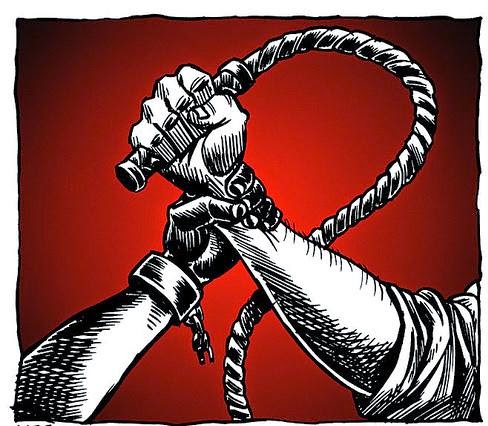| Online: | |
| Visits: | |
| Stories: |

| Story Views | |
| Now: | |
| Last Hour: | |
| Last 24 Hours: | |
| Total: | |
Governments Cannot Justify a Rapist
 Rachel Chanel Adams
Rachel Chanel Adams
Activist Post
There’s a saying, “All things in moderation.” But when India’s Prime Minister Narendra Modi suggests that with rape “sometimes it’s right, sometimes it’s wrong,” there is no explanation for this viewpoint (The Washington Post, 2014).
Governments throughout the world overlook rape as a crime, and some nations even have laws in place that protect offenders. Meanwhile, the powers-that-be are running into a major issue once international light illuminates their immoral statutes: the voice of the people. Online petitions, appeal letters, activists and advocate organizations are hitting corrupt regimes hard in demanding protections against sexual violence. Although there is an increasing amount of progress in diminishing the terror of rape supported by government officials and institutions, there is still a lot of work to do.
Prime Minister Modi is not alone in his ideals of rape, and he is not the first. Even in World War II, militaries around the world, from Indonesia to Malaysia to Japan to China, used “comfort women,” women sold into sexual slavery, to sexually gratify their soldiers. Incidents in recent times reflect male-dominated regimes with misogynistic ideas that affect policy. In February 2013, a 15-year-old Maldivian rape victim was sentenced to 100 lashes and house arrest. According to Amnesty International, the girl was convicted of fornication. She had been sexually abused by her step-father.
Daily Mail Online reported that in 2011 nine out of ten sentences for flogging in the Maldives were to women, while in the last three years no one has been convicted of rape. In August 2013, the sentence was repealed with support of online petitions and advocates. In January of this year, Moroccan officials amended a law that allowed men who raped women to avoid prosecution by marrying the victim if they were under 18 years old (Al Jazeera, 2014). This same law persists in Algeria and Tunisia. (Click here to sign a petition to abolish it.)
 Also, governments have other ways of punishing rape victims, including an incident that happened in 2007 when a Saudi Arabian woman was sentenced to 200 lashings and 6 months in prison. She was sentenced by the General Court of Qatar because she attempted to aggravate and influence judiciary through the media” (Human Rights Watch, 2007). Reportedly, Saudi Arabia’s king personally interfered due to media attention and revoked the sentence. Global attention and action are the vital underlying irrigators to wash out corruption and bring forth positive change.
Also, governments have other ways of punishing rape victims, including an incident that happened in 2007 when a Saudi Arabian woman was sentenced to 200 lashings and 6 months in prison. She was sentenced by the General Court of Qatar because she attempted to aggravate and influence judiciary through the media” (Human Rights Watch, 2007). Reportedly, Saudi Arabia’s king personally interfered due to media attention and revoked the sentence. Global attention and action are the vital underlying irrigators to wash out corruption and bring forth positive change.
One of the major engagements held to solve the global issue of sexual violence that took place June 10-13, 2014 is the Global Summit to End Violence in Conflict. Over 900 experts from over 100 countries gathered to rally commitment to ending violence in conflict. Convening in groups of people from all around the world to develop ideas and policies that eradicate sexual violence is critical.
Research is a major component to attacking the issue of rape. Access to information is critical in identifying key issues. The Guardian, in conjunction with Equality Now, is crowdsourcing rape laws and compiling a database. To help with this initiative, please click here. Action is still needed is to increase momentum. The glimmers of light that these solutions give to the issue of rape should not provoke a sense of relief that results in a decrease of activity.
How do these actions annihilate authoritative regimes and ordinances that allow oppression through rape? Action empowers the masses to follow suit. American author, attorney, lecturer, and former Presidential advisor Napoleon Hill said “the majority of men meet with failure because of their lack of persistence in creating new plan to the take the place those which fail.” Once action is taken, we cannot let up, and we must create solutions.
Rachel Chanel Adams is an American entrepreneur and human rights activist. She began organizing for human rights with the Center for American Progress and Organizing for Action. She currently focuses her efforts on ending sexual violence against women around the world, particularly in the Democratic Republic of the Congo. Adams is actively involved with non-profit organizations, including Women for Women International and the Association for Women’s Rights in Development (AWID). She is the CEO of Complex Entertainment, a full-scope entertainment company dedicated to simplifying the fusion of music and film with other industries of business. She earned a bachelor’s of science in consumer science and fashion merchandising.
Source: http://www.activistpost.com/2014/06/governments-cannot-justify-rapist.html




